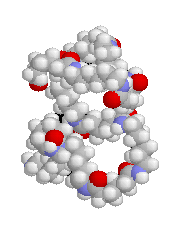Polymers in Health Care: Improving Clinical Instruments and Treatments
Exploring the Varied Applications and Benefits of Polymers in Different Industries
Polymers, with their diverse range of properties and performances, have actually become important in different industries, each reaping special benefits from their application. From improving security and performance in the auto market to revolutionizing medical devices in the health care market, polymers play a crucial role.
Automotive Market Applications
Polymers play a critical duty in boosting the performance and toughness of various elements within the automotive field. These flexible products are extensively used in the manufacturing of various components, varying from indoor components to under-the-hood applications. One noticeable use polymers in the vehicle market is in the production of lightweight elements. By replacing traditional metal get rid of polymer-based choices, vehicles can achieve improved gas efficiency without compromising on stamina or safety and security.

Health Care Market Benefits
In different healthcare applications, the advantages of using polymers are widely recognized for their diverse series of useful buildings. Polymers play an essential role in the healthcare industry due to their adaptability, biocompatibility, and cost-effectiveness. Among the main benefits of polymers in medical care is their ability to be customized to certain needs, such as flexibility, durability, and biodegradability, making them ideal for a wide variety of clinical applications.
Polymer-based materials are extensively made use of in medical tools, such as catheters, implants, prosthetics, and drug distribution systems, due to their biocompatibility and capability to resemble all-natural tissues. These products can reduce the risk of sensitive reactions or rejections, enhancing individual security and results. Additionally, polymers are lightweight, making them suitable for wearable clinical tools and making certain individual convenience.
Furthermore, polymers enable the development of cutting-edge therapy approaches, such as hydrogels for tissue design and nanocomposites for targeted drug delivery. Their ease of processing and sanitation makes them necessary for maintaining high criteria of hygiene in medical care settings. Generally, the diverse benefits of polymers contribute dramatically to developments in clinical technology and person care.
Ecological Benefits of Polymers

Furthermore, polymers can contribute to energy cost savings because of their light-weight nature. In sectors such as transport, light-weight polymer products can help reduce fuel consumption and greenhouse gas emissions. review Additionally, polymers can allow the advancement of energy-efficient products such as insulation materials that enhance energy conservation in buildings.
Moreover, polymers play a vital duty in lowering water air pollution. The use of polymer-based filtering systems can successfully get rid of toxins and impurities from wastewater, securing water sources and communities. In general, the environmental advantages of polymers make them useful possessions in promoting sustainability and environmentally friendly practices throughout different industries.
Polymers in Electronics and Modern Technology
Taking into consideration the boosting demand for innovative and lasting solutions in contemporary sectors, the integration of advanced polymer the original source technologies in the realm of electronic devices and technology has actually arised as a critical strategy for driving effectiveness and performance. Polymers have actually transformed the electronic devices market by making it possible for the production of lighter, more versatile, and durable digital devices. From smart devices to medical devices, polymers play a vital function in boosting product layout and functionality.
One substantial advantage of polymers in electronics is their shielding residential or commercial properties, which aid safeguard fragile electronic elements from ecological elements and electric disturbance. Additionally, polymers are necessary in the growth of flexible display screens, wearable technology, and printed electronic devices, providing limitless opportunities for creating wise and interconnected tools.
Additionally, the usage of polymers in electronic packaging has actually brought about developments in miniaturization and thermal monitoring, improving the overall performance and dependability of digital systems. As technology continues to advance, the convenience and adaptability of polymers will undoubtedly drive even more technology in the electronics industry, shaping the future of innovation.
Role of Polymers in Construction and Framework
Polymers use various advantages in the construction sector due to their adaptability, longevity, and cost-effectiveness. One crucial function of polymers in construction is their usage in finishings and sealants, supplying security versus ecological factors such as dampness, UV radiation, and rust.
Moreover, polymers play a crucial function in sustainable building and construction methods by enabling the advancement of energy-efficient structures. Protecting materials made from polymers right here assist regulate interior temperatures, minimizing the need for home heating and cooling systems and eventually lowering energy consumption. Additionally, the usage of polymer-based composites in framework tasks such as bridges and roadways improves their long life and reduces upkeep prices. On the whole, the incorporation of polymers in building and construction and infrastructure displays their substantial influence on contemporary design techniques.
Final Thought
To conclude, polymers play an essential function in different markets such as vehicle, health care, ecological, electronics, and construction. Their versatile properties make them valuable in creating innovative solutions and products. From improving fuel efficiency in vehicles to boosting clinical tools, polymers supply countless benefits. Furthermore, their effect on minimizing waste and promoting sustainability highlights their value in modern-day applications. The prevalent use polymers demonstrates their significant payment to advancing innovation and improving lifestyle.